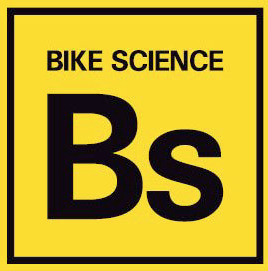
What is an E-Bike?
The first important thing to understand when purchasing your brand new E-bike is what exactly is an E-bike and where it stands in relation to a regular bicycle and a motorbike. First of all, an E-bike, at least as far as the British market is concerned, is not a scooter nor a motorbike. To be road legal in the UK it has to have pedals that can propel the bike, hence the designation "electric-assist". As long as the motor doesn't operate if you're travelling at more than 15.5mph (25km/h) and puts out no more than 250 watts, 14-year-olds and over can ride it without a licence, tax, insurance or helmet.
The next important consideration when choosing an E-Bike is of course the mechanical heart of it, the motor. We ought here to look at four things: types, power, capacity and quality.
Motor Types
For motor type, what we mean is whether you are looking at a hub based motor (power delivered through the wheel, either front or rear) or a crank based motor (power delivered through the crank whilst pedalling).
At Bike Science most of the E-bikes we offer fall into the second category, pedal assisting crank based motors whilst some of the entry level E-Mountain bikes are of the first hub-based type. In either case one must always be mindful that all motors provide pedal assistance and hence only activate whilst pedalling.
Power
The power, measured in Watts, gives you an idea of the maximum assistance the bike can offer you while riding. All the Focus E-bikes offer the industry standard 36V motors with a maximum output of 250W except for the Impulse Evo RS motor which offer up to 350W of power. Motor producers will also give a figure of the maximum torque that a motor can generate. From the point of view of the rider, the total Watts produced pedalling are calculated by taking the torque applied to the pedals together with the cadence expressed by the rider. The torque figure will give you an indication of the “kick” you’d get from the assistance in specific situations such as for example going up a steep hill. More expensive motors come accompanied with different ways of smoothing the applied torque whilst pedalling which have the effect producing a more realistic feel, without the assistance feeling too jerky or too lazy. In the Focus range, the motors offered start from 55Nm to 100Nm.
Capacity/Range
So how long will my E-bike be able to assist me for? This one of the most often asked questions when it come to E-bikes. Unfortunately, there is no straight answer to it. There are too many variables to take into consideration in order to have a very accurate measurement. These include how much assistance is required with each pedal stroke, rider weight, how many “stops and goes” are on your way to work, air temperature, metres to be climbed, etc.. What we can do though is provide an educated guess of the minimum capacity. The bike’s store of energy is measured in Watt-hours. That is, power multiplied by time. For example, if I have a 400Wh battery and a 250W motor, I will be able to receive that assistance (250W) for 400/250=1.6h. Roughly an hour and thirty-six minutes. If we multiply that figure by 25 km/h we get an answer of 40Km or about 25 miles. We interpret this figure as an estimation of the minimum distance and time capacity of the E-bike to assist you in its most powerful mode. Remember, this is the minimum assisted distance you’re likely to get out of a battery and motor of these capacities. In real world conditions the distance is likely to be significantly greater.
Quality
Lastly, when selecting an E-Bike, you should take into consideration the quality of the motor. Good quality motors from companies such as Bosch, Impulse and Shimano will be supported by after sales availability of servicing and spare parts. A known branded motor will be covered by a warranty period with a support system in place capable of supplying and delivering parts in a timely manner. A similar discourse can be applied to serviceability. Well known brands build their motors according to established or establishing industry standards making the necessary repairs and supply of spare parts possible and feasible not only from the retailer you purchase your E-bike from but also from most recognised E-bike workshops.
Fit
An E-Bike, as with any other bike should fit you properly. Even though you have the luxury of motorised assistance, every effort should still be made to ensure that firstly, you purchase a bike that fits you properly and secondly, this bike is set up in a way that is comfortable, efficient and encourages good posture whilst riding. At Bike Science, we offer free pre-purchase sizing consultation sessions and free bike fitting with every bike to ensure the best possible riding position for every client.
For more information on our range of E-Bikes or to book a test sizing and test ride CONTACT US today.
